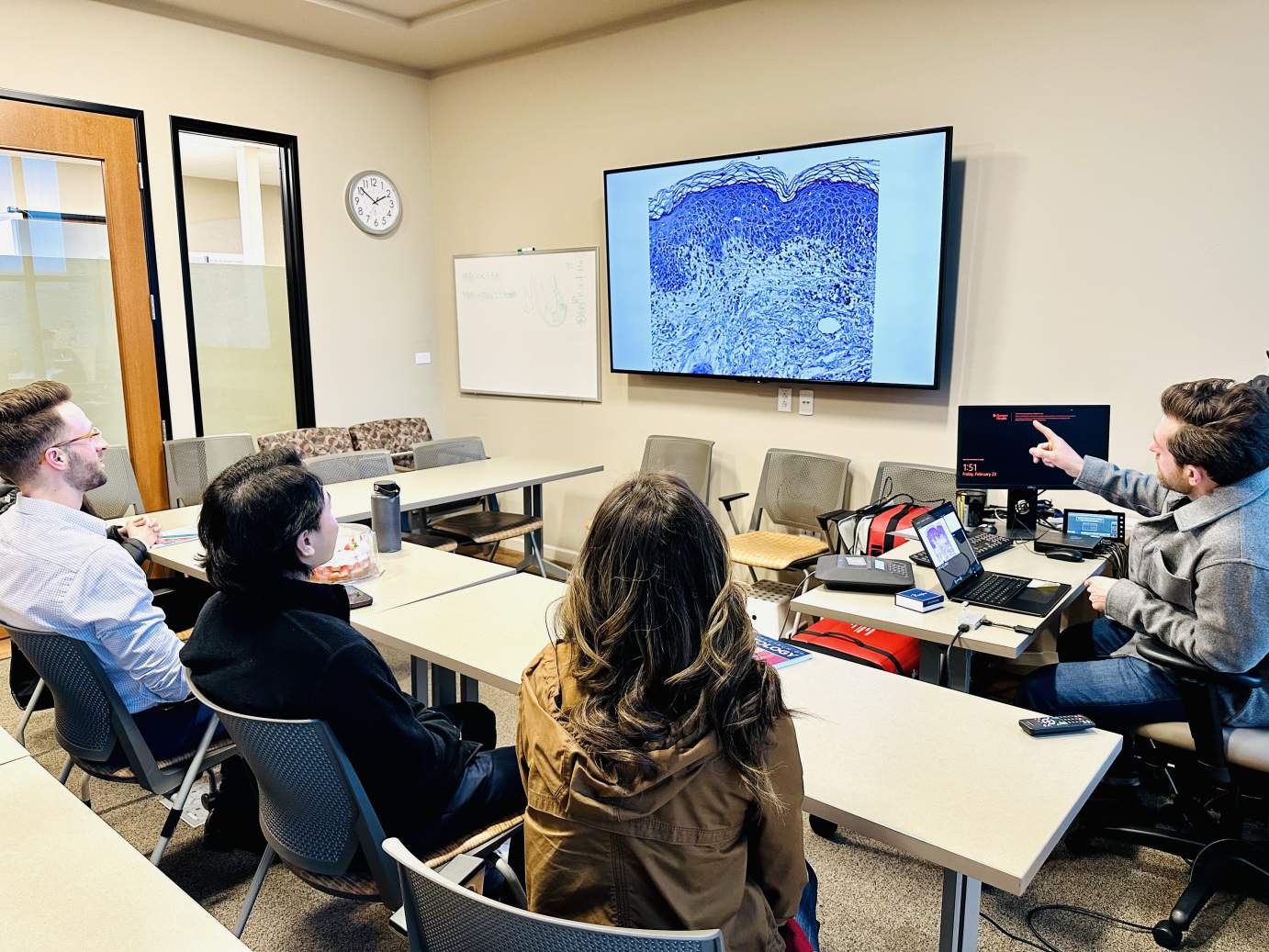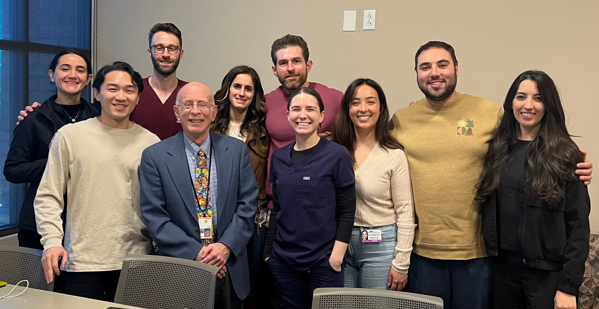The residency program provides comprehensive training in medical and surgical care of the skin, hair, and nails. This 3-year program (PGY-2 through PGY-4) is designed to meet all of the training requirements of the American Board of Dermatology (ABD).
We expect that residents who complete our training program will become board certified by taking and passing the ABD exam.

Events
Grand rounds, didactic lectures, conferences, textbook conferences, and journal clubs are held on a weekly basis.
Locations
Residents will spend their three years of training in inpatient, outpatient, and surgical settings. Exposure to dermatology practice will occur at the university clinics and in private practice settings.
Approximately one third of each resident’s experience will take place at the Southern Arizona VA Healthcare System (VA). Within this facility, residents will gain experience with inpatients, outpatient clinics, and surgery.
The other two thirds of each resident’s training will take place at University of Arizona Cancer Center – North Campus (UA), which is part of the cancer center's clinical operations run by Banner – University Medicine, the academic division of Banner Health. The division has two hospitals in Tucson, Banner – University Medical Center Tucson and South campuses.
Areas of Study
Residents will obtain mastery in each of the following focus areas:
Clinical Dermatology (UA, VA)
Residents will be assigned to these clinics during all years of training. All clinics will be staffed by an attending physician. The residents will obtain exposure to all aspects of medical dermatology and medical mycology during these clinics. Residents are expected to see patients to obtain a history and physical examination, and then formulate a differential diagnosis and a treatment plan with the guidance of the attending physician.
Inpatient Dermatology (UA, VA)
Inpatients may be admitted and managed by a first year resident under the direct supervision of the attending Dermatologist.
Inpatient Dermatology Consultation Service (UA, VA)
During PGY 2-4 residents will rotate on this service and daily learning will take place at the patient bedside with the attending physician assigned to this service.
Pediatric Dermatology (UA, PCH)
Residents of all years will see pediatric patients in the outpatient and inpatient settings at the UA facilities in Tucson.
Contact and Occupational Dermatology (UA, VA)
Residents will gain exposure to contact and occupational dermatology of the general dermatology clinics. They will learn how to apply and select appropriate patch tests under direct faculty supervision.
Dermatologic Surgery (UA, VA)
Dermatologic surgery cases will be performed in all years of training with increasing complexity of excisions and closures (including flaps and grafts) throughout the years of training. Cases will be performed under the direct supervision of attending Dermatologists. Assigned surgical rotations will also be performed in the second and third years. During these rotations, the resident will participate in all aspects of care of the surgical patient including the evaluation, surgical planning, surgery, and postoperative care of general dermatologic surgery patients as well as patients having nail and Mohs micrographic surgery. These rotations will be under the direct supervision of the dermatologic surgery staff.
Cosmetic/Aesthetic Dermatology (UA)
The primary site for exposure to this rapidly changing field of dermatology will be the office of Dr. Gerald Goldberg. Residents will have exposure to various cosmetic procedures including injection of botulinum toxin and fillers, sclerotherapy, photodynamic therapy, scar revision, hair transplantation, tumescent liposuction, and dermabrasion, and chemical peeling.
Dermatopathology and Immunodermatology (UA, VA)
Residents will receive exposure to reading dermatopathology slides throughout their residency through weekly unknown slide sessions (run by Drs. Culpepper and Sagerman) as well as by completing 4 months of formal dermatopathology rotations in each the second and third years. Residents on the dermatopathology rotation will receive direct one-on-one training in immunofluorescence and electron microscopy for diagnosis of immunobullous disease.
Dermatology Research (UA, VA)
The Dermatology Division maintains an active research program both in basic science and in clinical research. All residents will have a half day per week for scholarly purposes including research. Residents are expected to complete a paper during each year of their residency and present an abstract at a national dermatology meeting. Elective rotations in research are available in the third year to residents wishing to increase their exposure to clinical or basic science research.
Laser Surgery (UA)
Most of the exposure to lasers will occur in the Tucson office of Dr. Gerald Goldberg. Residents will perform cases with a variety of different lasers including pulsed dye laser for treatment of vascular malformations, hair removal and tattoo removal lasers, as well as intense pulsed light and lasers for ablative and non-ablative rejuvenation.
Phototherapy (UA)
The residents will learn to use current phototherapy techniques to treat inflammatory dermatoses and cutaneous T-cell lymphoma using narrow-band UVB and topical PUVA, i.e., photochemotherapy, a combination of psoralen (P) and long-wave ultraviolet radiation (UVA) used to treat psoriasis and several severe skin conditions.

